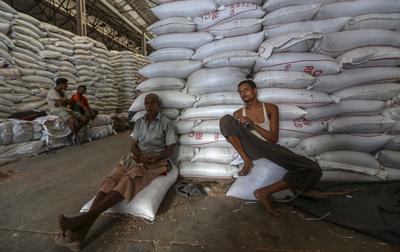The Trade Facilitation Agreement aimed to boost trade by providing for faster and more efficient customs procedures through effective cooperation between customs and other appropriate authorities. It also contains provisions for technical assistance and capacity building in this area.
The Trade Facilitation Agreement seeks to cut red tape and relax customs rules. Although these measures — which include infrastructure upgrades, spending on automation and computerisation and improvements to documentation — would cost money, the agreement would have provided for international assistance to developing nations to help them build capacity. Trade facilitation improvements would boost the export competitiveness of goods produced by developing countries. It would level the playing field for many small and medium-sized enterprises whose ability to participate in international trade has been hampered by red tape.
The proponents of the agreement see movement on trade facilitation potentially adding US$1 trillion to global GDP and generating 21 million jobs worldwide. But India has chosen to torpedo the deal because it thinks that there has been insufficient progress on talks about an issue its cares more about: food security and the stockpiling of grain.
India currently procures food for poor citizens through a public distribution scheme and provides for a price floor for its farmers. The price support is a measure subject to restrictions under current WTO rules: notably, the amount of support given (defined as the difference between the price the government pays for food and a ‘reference price’ set in 1986-88) cannot exceed 10 per cent of a nation’s production of the foodstuff. The Bali deal offered a ‘peace clause’, which meant that currently existing food security schemes — like India’s — could not be challenged in the WTO for the next three years while a permanent solution is found. India worries that once the trade facilitation agreement is in place, the issue will be sidelined.
But the decision by India to veto the Trade Facilitation Agreement has isolated the country in the WTO. Support from China, Brazil and some African countries has vanished. John Danilovich, the Secretary General of the International Chamber of Commerce, has warned that ‘countries that see this agreement as a key to modernise trade rules have already planned to push ahead excluding India from the agreement’. India’s decision has been criticised by US Commerce Secretary Penny Pritzker as threatening the completion of the Doha round and calling into question the efficacy of the multilateral system. India may now find the US less favourable to cooperation on issues like infrastructure investment, intellectual property and visa issues.
It would be in India’s best interests to constructively participate in WTO negotiations on agricultural and food issues rather than hijacking unrelated agreements. India is only damaging its credibility by linking its food security and subsidy issues to the Trade Facilitation Agreement.
Dr Geethanjali Nataraj is a Senior Fellow and Richa Sekhani is a Research Intern at the Observer Research Foundation in Delhi.

